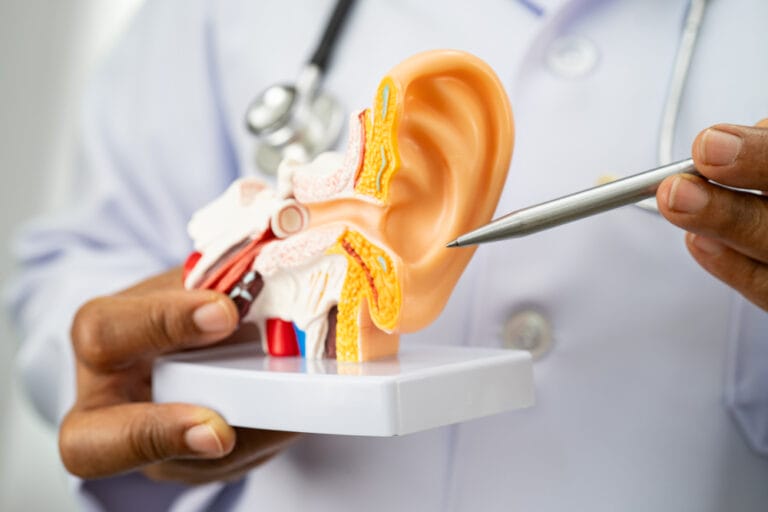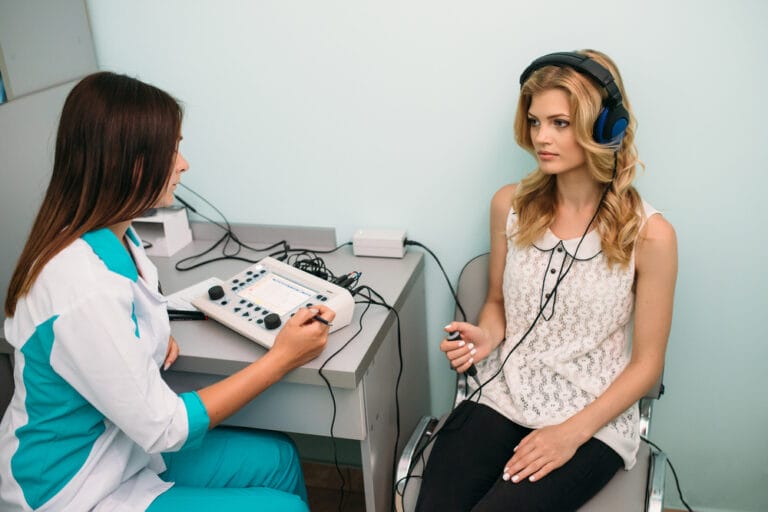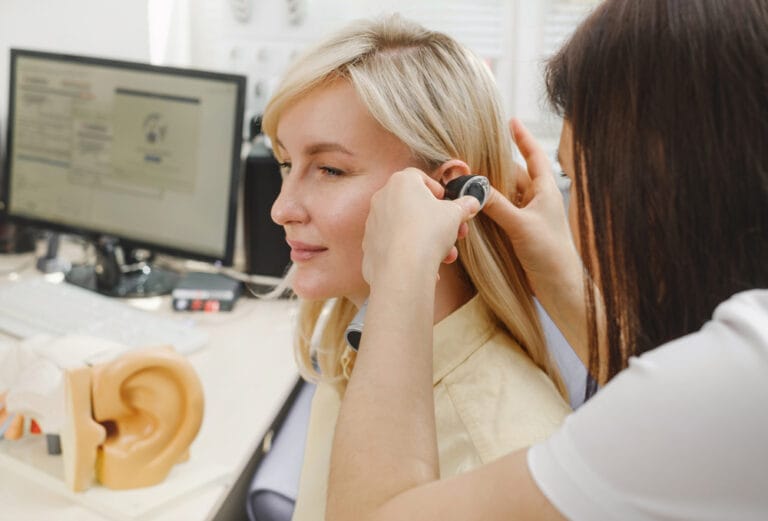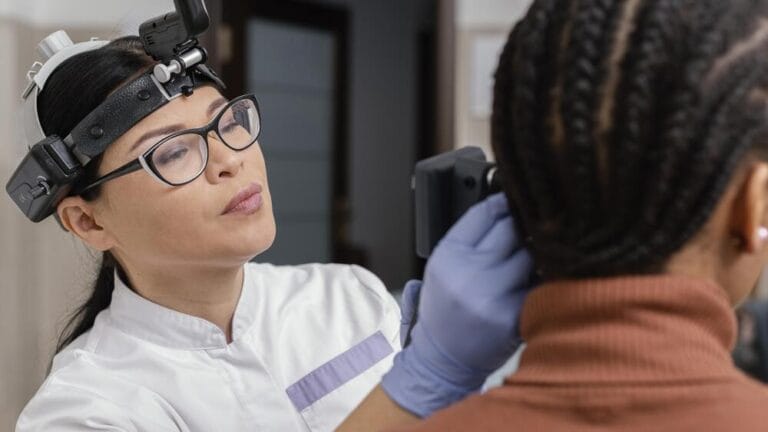Home How the Ear Works: From Sound Waves to Brain Signals
How the Ear Works: From Sound Waves to Brain Signals
How the Ear Works – Quick Breakdown
- Outer ear – Collects sound waves
- Middle ear – Boosts the vibrations
- Inner ear (the cochlea) – Turns those into electrical signals
- Nerve – Sends signals to the brain
- Brain – Understands the sound
- Problems like aging, noise, or fluid can affect this process.
- Protect your hearing with early checks, safe volume levels, and the right support.
- NYC Hearing Associates offers expert testing and care if you notice any changes.
Hearing is one of the body’s most remarkable processes – and one we often take for granted until something changes. Understanding how the ear works can help you recognize when something feels off and give you the tools to act early. If you’re experiencing hearing changes, NYC Hearing Associates offers expert-led evaluations and guidance.
The Three Parts of the Ear

Outer Ear
The outer ear includes the part you see (pinna) and the ear canal. Its job is to collect sound waves and send them inward. These waves travel toward a thin membrane called the eardrum, where vibration starts.
Middle Ear
When sound waves hit the eardrum, it begins to move. This vibration is passed to three tiny bones in the middle ear: the malleus, incus, and stapes. These bones help with transmission, making the vibration stronger.
Fun fact
The stapes is the smallest bone in the human body.
Inner Ear
The inner ear holds the cochlea – a spiral-shaped part filled with fluid and tiny sensory hair cells. These cells change vibration into electrical signals. This step turns sound into something the brain can understand.
How Sound Reaches the Brain


What Can Disrupt the Process?

Several factors can interfere with this delicate process:
- Age-related changes (presbycusis)
- Long-term noise exposure
- Fluid buildup or middle ear infections
- Structural damage to the cochlea or auditory nerve
- Blockages in the outer ear (earwax, inflammation)
Even small issues can reduce the brain’s ability to process vibration and frequency accurately. Timely care can make a measurable difference.

Protecting Your Hearing System

Hearing care starts with prevention. Here are a few helpful habits:
- Use hearing protection in loud environments
- Avoid prolonged headphone use at high volume
- Stay aware of early signs like ringing, sensitivity, or discomfort
Scheduling a hearing evaluation helps identify changes early and keep your hearing sharp over time. You can also explore our full range of Hearing Specialist Services for personalized care.

When to See a Hearing Specialist

Be mindful of changes like:
- Muffled or distorted sound
- Trouble following conversations
- Needing to turn up the volume more than usual
- Feelings of pressure or imbalance
These can point to concerns in the outer, middle, or inner ear. At NYC Hearing Associates, our board-certified audiologists use advanced diagnostics to pinpoint the issue and provide a path forward.

Book a Consultation
Learning how hearing works is a smart first step. If you’re ready to check in with your hearing or have noticed any changes, get in touch with our team to schedule a full evaluation. We’re here to help you stay connected to the world around you.




